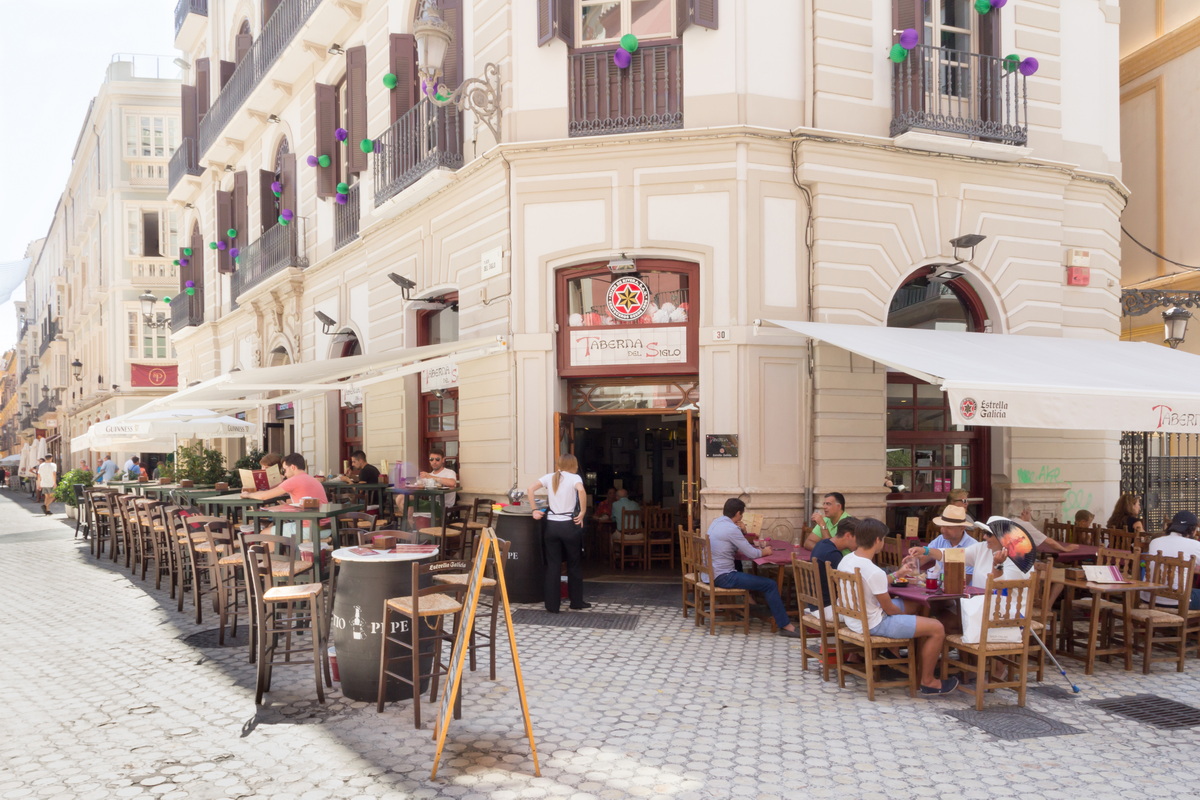Living in Andalucia allows you to enjoy one of the most beautiful regions of Spain. This region has a rich history and culture, a vibrant and welcoming community, and endless natural beauty. For many people, moving to Andalucia is a dream come true, a chance to enjoy the sunny climate, the delicious food, the stunning landscapes, and the relaxed way of life. This is an area equally popular with families and retirees in Spain.
However, living in Andalucia as an Expat can also be a challenge, especially if you are unfamiliar with the language, the customs, and the bureaucracy. In this blog post, we will share some tips and advice on what Expats really need to know about living in Andalucia.
Learn the Language
The first and most important thing you need to know before moving to Andalucia is that Spanish is the official language. And the vast majority of locals speak only Spanish. It is possible to get by with only English in some areas, especially in the tourist industry. However, you will have a much better experience if you learn at least some basic Spanish.
Not only will you be able to communicate with the locals, but you will also be able to enjoy the culture, the cuisine, and the lifestyle more fully. Many resources are available to help you learn Spanish, from online courses to language schools to private tutors. Try to learn the language, and you will be rewarded with a deeper understanding of Andalucia and its people.
See: Our Best Ways to Learn Spanish.
Get to know the Culture
Andalucia has a rich and diverse culture, influenced by centuries of history and the many civilizations that have lived here. From the flamenco music and dance to the bars and the tapas, from the festivals and celebrations to the art and architecture, there is so much to discover and appreciate in Andalucia.
However, to fully appreciate the culture, you need to get involved and participate. Attend a flamenco show, visit a museum, join a local festival, explore the museums and galleries, and try the local cuisine.
Andalucia is a place of warmth and hospitality, and the locals are always happy to share their traditions with visitors.
Understand the Bureaucracy
Moving to a new country always involves dealing with bureaucracy, and Andalucia is no exception. You must follow many administrative procedures, from obtaining a residence permit to registering with the town hall to opening a bank account.
While frustrating and time-consuming, it is essential to follow the rules and regulations. Ensure you have all the necessary documents, such as your passport, visa, health insurance, and proof of income.
Keep copies of all your documents, and ensure they are current. Be patient, persistent, and polite when dealing with the authorities, and seek help from a qualified Spanish immigration lawyer or an immigration consultant if needed.
The Cost of Living in Andalucia
The cost of living in Andalucia is lower than in many other parts of Europe. However, it is essential to note that the cost of living can vary depending on the location.
Coastal areas tend to be more expensive than inland areas, and cities such as Seville and Granada can be more costly than smaller towns.
The cost of living in Andalucia is generally lower than in the United States, and Expats can enjoy a good quality of life for less money.
See our Cost of Living in Spain Calculator to create your own budget.
Embrace the Andalucia Lifestyle
One of the biggest attractions of living in Andalucia is the relaxed and laid-back lifestyle. The locals value family, friends, and leisure time and enjoy long meals, siestas, and socializing.
As an Expat, adjusting to this pace of life can take some time, especially if you come from a culture that values efficiency and productivity. However, once you embrace the lifestyle, you will find it a wonderful way to live. Take time to savor your meals, enjoy the company of your friends and family, and explore the natural beauty of Andalucia.
You will find that life is richer and more rewarding when you slow down and appreciate the moment.
The Best Places for Expats Living in Andalucia
If you’re considering moving to Andalucia, here are some of the best places for Expats to live.
Seville
Seville is Andalucia’s capital and one of Spain’s most beautiful cities. It’s known for its stunning architecture, vibrant culture, and delicious food. The city is full of history, with landmarks such as the Alcázar of Seville, the Cathedral of Seville, and the Plaza de España. Seville also has a thriving Expat community with many English-speaking clubs and organizations.
Malaga
Malaga is a coastal city located on the Costa del Sol. It’s known for its beaches, seafood, and nightlife. Malaga is also a cultural hub, with museums such as the Picasso Museum and the Carmen Thyssen Museum. The city has a large Expat community, with many retirees and digital nomads calling Malaga home.
Granada
Granada is a historic city located in the foothills of the Sierra Nevada mountain range. It’s known for its stunning Alhambra Palace, which is a UNESCO World Heritage site. Granada is also a university town with a vibrant student population. The city has a bohemian feel, with many art galleries, live music venues, and restaurants.
Nerja
Nerja is a small coastal town located on the eastern Costa del Sol. It’s known for its stunning beaches, including the famous Burriana Beach. Nerja also has a charming old town with narrow streets, whitewashed buildings, and a laid-back atmosphere. The town is popular with Expats, especially retirees who enjoy the warm climate and relaxed lifestyle.
Ronda
Ronda is a historic town located in the mountains of Andalucia. It’s known for its stunning views, including the famous Puente Nuevo bridge, which spans a deep gorge. Ronda also has a rich cultural heritage, with landmarks such as the Mondragon Palace and the Church of Santa Maria la Mayor. The town is popular with Expats who enjoy hiking, cycling, and other outdoor activities.
Almeria
Almeria is a coastal city located on the eastern coast of Andalucia. It’s known for its stunning beaches, including the Cabo de Gata-Níjar Natural Park. Almeria also has a rich history, with landmarks such as the Alcazaba of Almeria and the Cathedral of Almeria. The city is popular with Expats who enjoy the warm climate and relaxed lifestyle.
Cadiz
Cadiz is a historic city located on the Atlantic coast of Andalucia. It’s known for its stunning beaches, including the famous La Caleta Beach. Cadiz also has a rich cultural heritage, with landmarks such as the Cathedral of Cadiz and the Torre Tavira. The city is popular with Expats who enjoy the laid-back atmosphere and rich history.
Transport In Andalucia
Navigating a new region can be daunting, especially when it comes to transportation. Andalucia, a vibrant region in southern Spain, offers a range of transport options for both locals and expats. Here’s a breakdown to help you get around with ease.
Airports in Andalucia
Andalucia is well-connected to major European cities through its airports. The primary airports in the region are:
- Seville Airport (SVQ): Located in the capital city of Andalucia, it’s a hub for both domestic and international flights.
- Málaga-Costa del Sol Airport (AGP): One of the busiest airports in Spain, it serves the coastal areas and is a gateway for many tourists.
Other notable airports include Almería Airport (LEI) and Jerez Airport (XRY).
Trains in Andalucia
RENFE, Spain’s official train company, operates extensively in Andalucia. The high-speed AVE trains connect major cities like Madrid, Malaga, Seville, and Cordoba, making inter-city travel swift and efficient. Train stations in Andalucia are equipped with amenities, and it’s advisable to book tickets in advance, especially during peak seasons.
Buses in Andalucia
Buses are a popular mode of transport in Andalucia, given the region’s mountainous terrain. ALSA is the leading company for inter-city bus transportation. The buses are modern, comfortable, and reasonably priced. For intra-city travel, especially in cities like Malaga and Seville, there are special bus lines connecting to airports and offering sightseeing tours.
Trams and Metros
Several cities in Andalucia have developed tram and metro systems to facilitate urban transportation:
- Seville: The Seville Metro is a light metro network serving the metropolitan area of Seville. It’s efficient and connects major parts of the city.
- Malaga: The Malaga Metro is a light metro network that connects the city’s suburbs to the center.
- Granada: The Granada Metro is a light rail line that connects the north and south of the city.
In conclusion, Andalucia’s transport infrastructure is well-developed, making it convenient for expats to travel both within the region and to other parts of Spain. Whether you prefer flying, taking the train, or hopping on a bus, Andalucia offers great options as per usual with transport in Spain.
Get Involved in the Community
Andalucia is a place of community and solidarity, where people look out for each other and support each other. As an Expat, ending up in a bubble of foreigners can be easy. But getting to know your neighbors will bring huge rewards if you plan on living in Andalucia.
FAQ – Living in Andalucia
What is the cost of living like in Andalucia compared to other regions in Spain?
The cost of living in Andalucia is generally lower than in many other regions of Spain. Housing prices can vary depending on the property’s location and size, but it is generally possible to find affordable housing options. Additionally, groceries and dining out are typically less expensive than in other parts of the country.
What are the healthcare options like for expats living in Andalucia?
There are both public and private healthcare options available to expats living in Andalucia. The public healthcare system is generally of a high standard, and many doctors and medical professionals speak English. Private healthcare is also an option for those who want more personalized care or shorter wait times.
How easy is it to find work in Andalucia as an Expat?
The job market in Andalucia can be competitive, but there are opportunities for those with the right skills and qualifications. English teaching is a popular option for many Expats, and there are also opportunities in tourism, hospitality, and technology.








